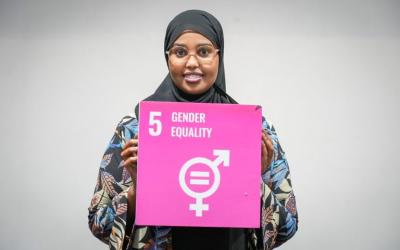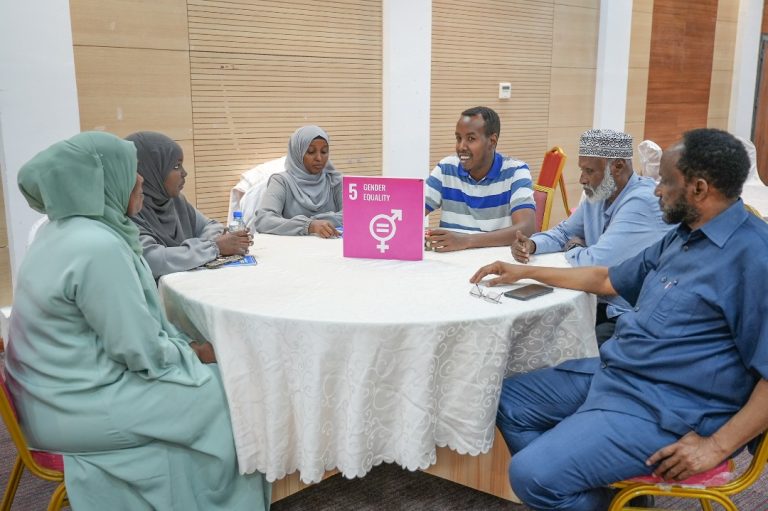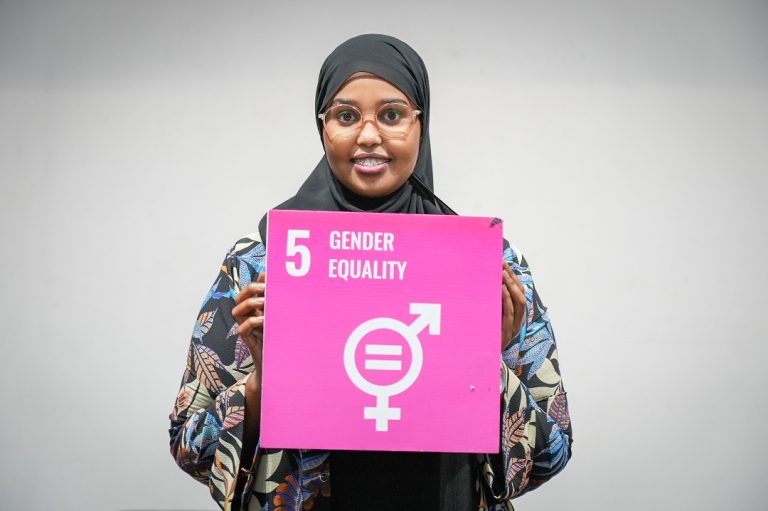The role of civil society women associations to achieve SDG 5 in Somalia

One of the key activities of the SDGCap project in Somalia has been a workshop to explore the role of civil society women associations for the attainment of Agenda 2030 in Somalia, with particular emphasis on SDG 5 (Achieve gender equality and empower all women and girls). The activity is linked to the outcomes of the project “CSOs contribute towards the attainment of the 2030 Agenda including better positioned to effectively promote and advocate for responsive, inclusive, participatory, and representative decision-making at all levels”.

The workshop started with a Quran recitation by one of the participants, followed by participant introductions. Prof. Mohamed M Biday, rector of Benadir University, formally launched the session after speeches by SDGCap steering committee member Prof. Mohamed Fuje and Project Lead Team Coordinator Prof. Hassan. SDGCap project coordinator Nina Viberg presented the project and the collaboration of the two universities Karolinska Institutet in Sweden and Benadir University in Somalia and briefly outlined the project’s scope and objectives.
Several participants from civil society delivered speeches during the opening remarks, including Zahra Mohamed, CEO of Somali Women Development Centre, who briefly discussed the current state of SDG 5 in Somalia and the role of CSOs in contributing to and addressing the economic and social challenges that women and girls face.
Rage Adem director of innovation at Benadir University made a presentation on the SDGCap project objectives, and overall activities including those that have taken place and the upcoming ones. During his presentation he also mentioned how this project is willing to bring solutions to the challenges facing youth including girls.
The objective of the workshop was to discuss the role of civil society women associations for the attainment of Agenda 2030 in Somalia with particular emphasis on SDG 5. The one-day workshop aimed to find key recommendations how to ensure and enhance accountability for a gender-responsive implementation of the 2030 Agenda.

Fartun Mohamoud.
The activity was organized by a group of young women led by Ikram Abdiaziz and with assistance from Naima Mohamed and Dr Idil Mohamed. In the morning session of the workshop, two presentations and a video clip were shown, followed by group discussions.
In the afternoon, a good practice debate was held on how to achieve gender equality and empower all women and girls, as well as how to ensure women’s full and effective participation and equal opportunities for leadership at all levels of decision-making in political, economic, and public life. The debate was moderated by Jamila Hagi, senior youth and gender expert at the UN Office in Somalia, with panelists including H:E Marian Duuliye, state minister of health and human services, Mandeq Haji gender expert, Zahra Mohamed senior trainer and gender campaigner, and Kafia Nalaye advocate and gender specialist.
Participants in the workshop represented various civil society organizations, including those more involved in gender equality, professionals and public figure personnel involved in gender-related activities as well as several youths who were invited to participate.
